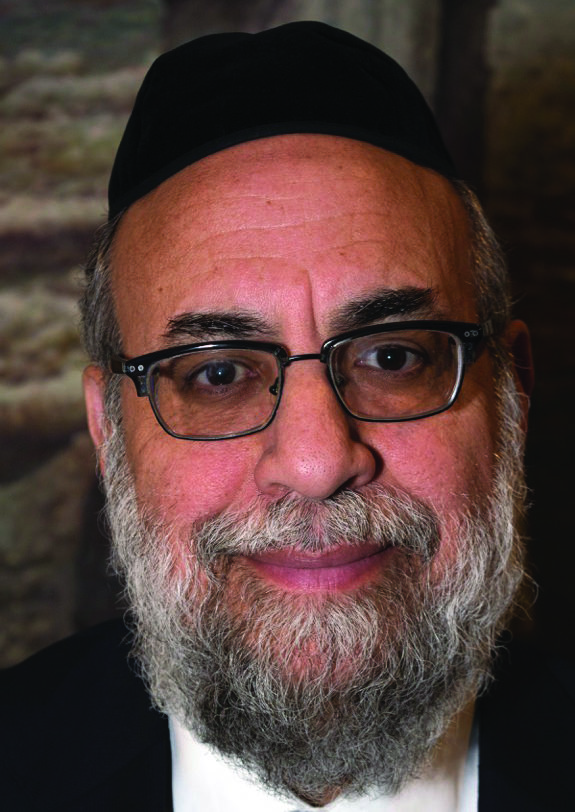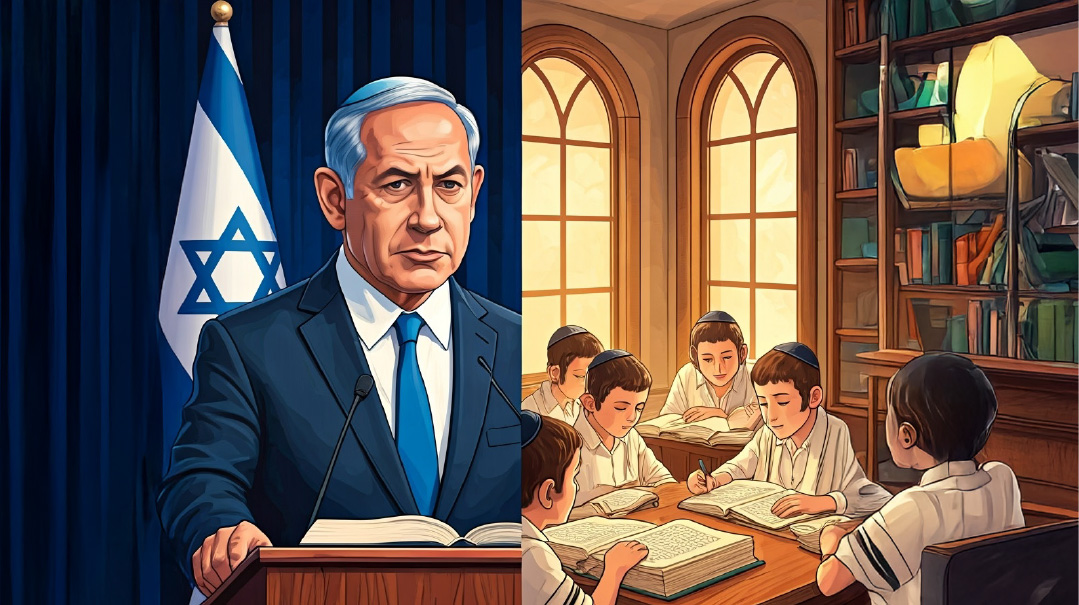Why Me?

In Sefer Koheles, Shlomo HaMelech, the wisest of all men, underscores for us that life is filled with challenges and opportunities — sometimes even conflicting ones. One of his examples is that there is a time to cry and a time to rejoice.
Finding the way to balance the two is probably the greatest challenge that one faces in his or her life.
Every once in a while, I am blessed with the opportunity to meet an individual, a giant in spirit, whose neshamah is pure enough to effectually balance these two conflicting emotions with a depth of understanding way beyond the rest of us. At times this depth of understanding comes from someone who we thought we knew for decades, but in reality we really did not.
A prime example of such a giant in spirit came to my attention when I went to pay a shivah call to the Krigsman/Follman family, who were sitting shivah for their daughter, wife, mother. and grandmother, the unforgettable Mrs. Sorala Krigsman a”h, who succumbed to a terrible machalah (illness) in the prime of her life and left her family and community bereft.
Sorala was diagnosed some years earlier with this terrible illness, but with great dignity and herculean strength, kept the news quiet, sharing it with only a handful of others. Even her younger children were spared the news until there wasn’t much time left. During the shivah, her dedicated and wonderful husband, who was her pillar of strength, shared a brief conversation Sorala had with her youngest child when she revealed to him the extent of her illness, only weeks before her untimely petirah. Mr. Krigsman prefaced the story by describing his wife as “just a simple woman.” After reading her thoughts, I am certain that you will share my sentiment that she was anything but “simple.”
When Sorala shared the terrible diagnosis with her youngest child, he asked the most obvious question that each and every one of us has asked many times in our own lives: “But mommy, why you?” And this “simple” mother, searching for just the right words to offer comfort to her child, perhaps her last opportunity to do so, answered with a heartfelt expression of such deep emunah and bitachon in HaKadosh Baruch Hu, that it should be written and pasted onto the front page of every siddur that Klal Yisrael uses to daven each and every day.
“Yes, my dear child,” she said. “When I first heard the terrible diagnosis from the doctor a few years ago, my first reaction was also exactly that: ‘Why me?’
“But then I thought to myself, when I was a young kallah standing under the chuppah next to such a special chassan and most of my friends were still single, I didn’t ask, ‘Why me?’ When HaKadosh Baruch Hu blessed me with six beautiful and healthy children, while some of my friends were having such difficulties, I didn’t ask ‘Why me?’ And when I was fortunate to walk several children down to the chuppah, while so many others have not been able to, I didn’t ask, ‘Why me?’ Now that I was chosen by the Ribono shel Olam to contract this terrible illness, I am not going to start now asking ‘Why me.’”
What depth. What clarity of vision.
And what a neshamah.
This vivid expression of accepting HaKadosh Baruch Hu’s will, and the recognition of all the good that he does for each and every one of us on so many levels, is a powerful lesson in emunah and hakaras hatov that we should all imbue into ourselves and into our families. And the fact that this is not a quote from the Chovos HaLevovos in Shaar HaBitachon or from the Chazon Ish in Sefer Emunah U’Bitachon, but from the pure neshamah of a “simple” woman who was just “one of the boys” (or so we thought), makes the obligation to internalize it that much greater.
The Chazon Ish ztz”l once shared with his students a very profound thought. We are taught that Yirmiyahu HaNavi wrote the mournful, heart-rending words of Eichah that describe the horrific details of the Churban. But these words were written with nevuah (prophecy), and the Gemara teaches that the Shechinah can only rest on a person who is filled with simchah. How could Yirmiyahu write such painful words about the Churban and yet be b’simchah? We learn from here, answered the Chazon Ish, that we must retain our simchas hachayim even during the most trying and difficult times in our lives.
My dear chaver, Rabbi Ephraim Shapiro of North Miami Beach, told me a beautiful mashal that left a profound impression upon me, and I have subsequently shared it with audiences I have addressed in the two years since I heard it.
The parable is of one of the poorest people in town, who always felt that he was being ignored by most of the people in the town. He constantly prayed that his situation would improve and he would finally get noticed. One day, he won the lottery and became wealthy overnight. He devised a plan: He would go onto the roof of the tallest building in the center of town and he throw down dollar bills, and when everyone would look up and see who was throwing down the dollars, he would finally receive the recognition that he so desperately sought.
When he began to throw down the dollars, however, the crowds was so preoccupied with trying scoop up as much money as possible that no one bothered to look up to see who was throwing them down.
The next day he decided he would try again, but this time it would rain down ten dollar bills. Surely then everyone would look up and take note of their benefactor. But the crowd once again began to shove and push each other to grab as many bills as possible, and not a single person looked up to see who was sending down this mahn from above.
By now he grew so frustrated from his failure to get their attention that he grabbed a fistful of rocks and threw them down on the crowd.
This time, he got everyone’s attention.
Most of us are like the fellow in this mashal. Throughout our lives, HaKadosh Baruch Hu rains upon us an abundance of blessings: parnassah, children, shidduchim, good health, etc., and we hardly ever look up to acknowledge and express appreciation to the Source of these brachos. Only when He sends down rocks — sometimes in the form of a pebble, sometimes as full-size rocks, and sometimes, Rachmana litzlan the size of boulders — do we look up and say “Why Me?”
But I wrote “most of us” are like this fellow, because every once in a while there comes along a “simple” neshamah, so pure and so filled with emunah and bitachon to its very core, and it reminds us how to face the difficult challenges that invariably crop up in our lives.
Mrs. Sorala Krigsman a”h understood that just as we accept all the wonderful brachos and gifts that Hashem grants us without asking “Why me?”, so too must we accept the things that we, with our limited Olam HaZeh vision blurred by tears and pain, are unable to perceive as brachos, without asking “Why me?”
Sorala’s important lesson to her child is not only a legacy for her children and grandchildren – it’s a legacy for all of Klal Yisrael.
Yehi zichrah baruch.
(Originally featured in Mishpacha Issue 407)
Oops! We could not locate your form.












